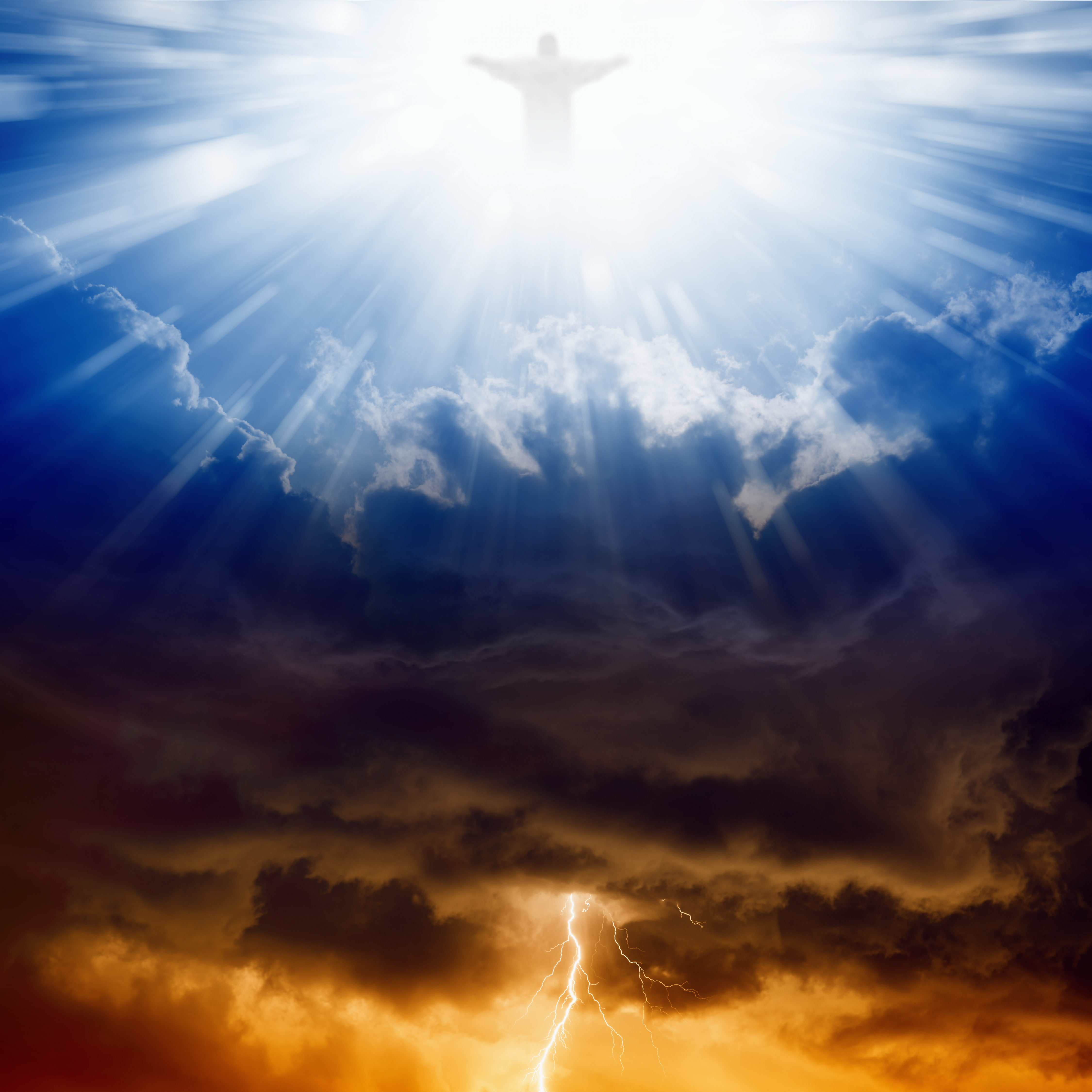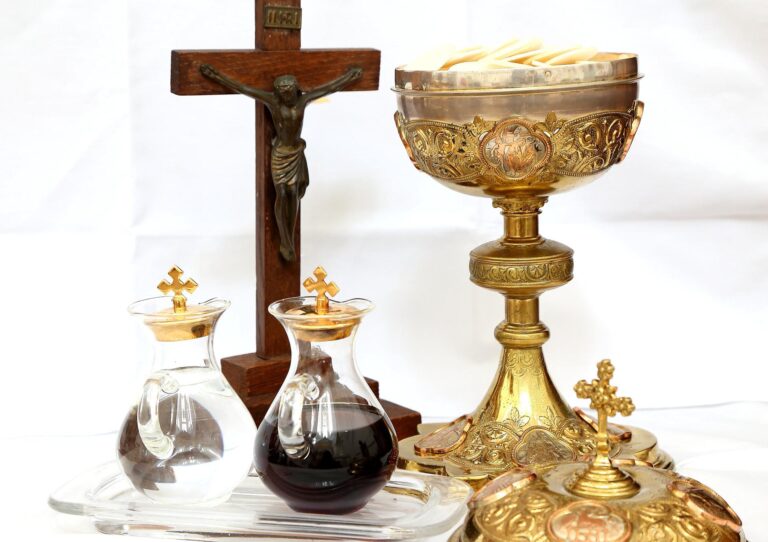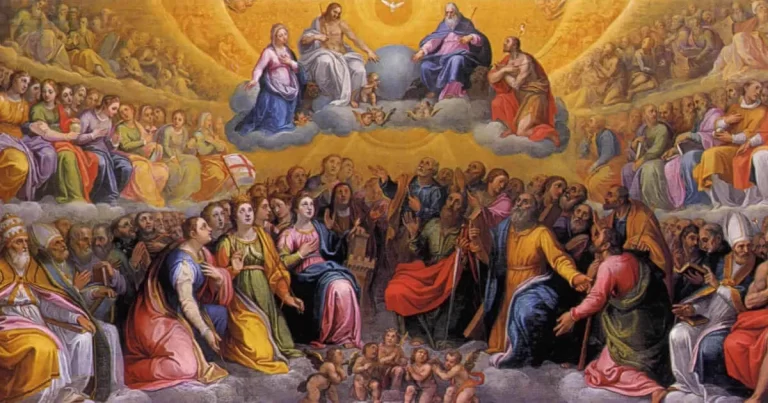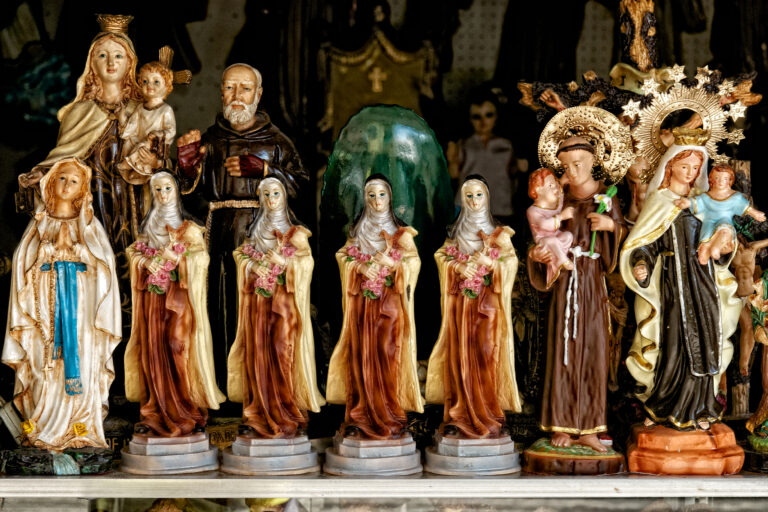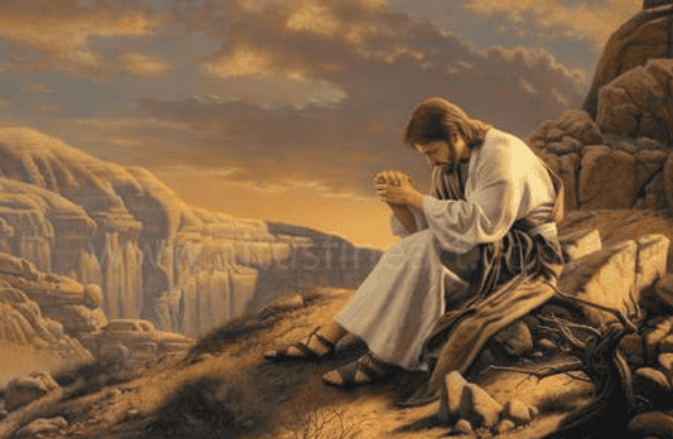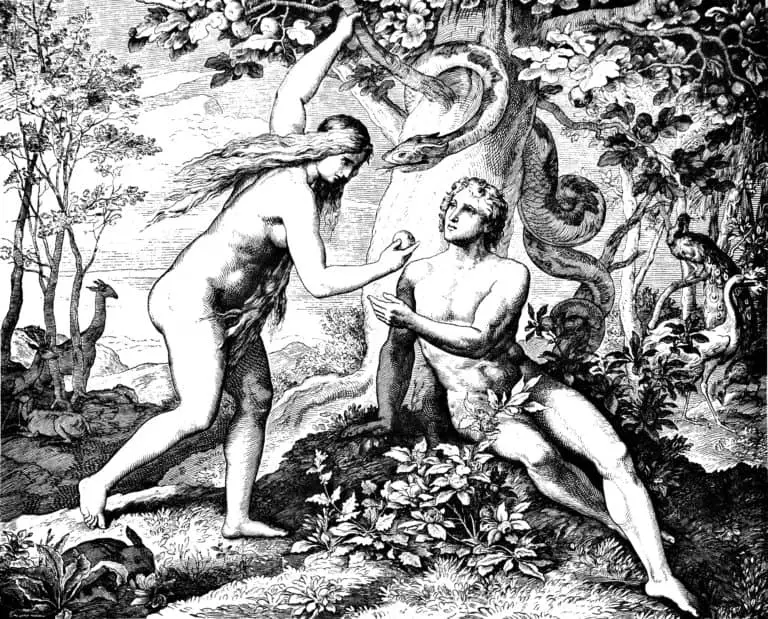What happens in the afterlife?
This article contains affiliate links.
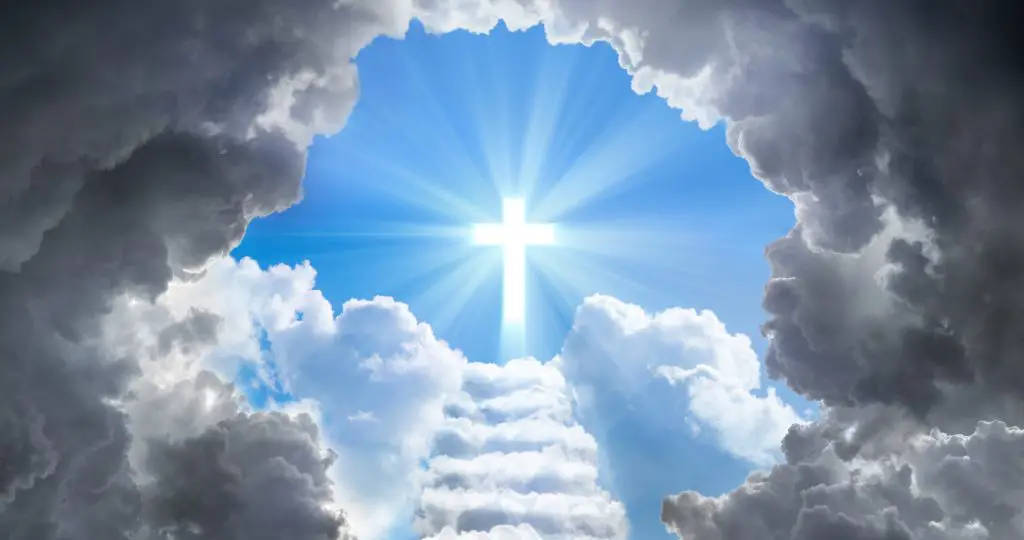
Life will one day cease for all. The prospect of facing the afterlife is troubling for many: Is there an afterlife? What happens to us in the afterlife? What happens when we die? Is there a Heaven? Is there a Hell? What about judgement? Does Purgatory exist? Death, Judgement, Heaven or Hell are often called the ‘Four Last Things’.
The afterlife, from a Catholic perspective takes on a similar meaning to the Egyptian civilization during the Pharaoh period, except for one difference, the Catholic will have no use of worldly treasures. For the Catholic, the dead continue to live. The study that seeks to find the answers to the question of the afterlife is ‘Eschatology’.
For the Catholic, the assurance of an afterlife comes through Jesus Christ, who entered into the world as a baby, lived till 33 years age, suffered, died, resurrected and ascended into Heaven. This is the hope that we hold onto and that one day, we will experience a bodily death and a resurrection.
What is Catholic’ Eschatology’?
The word ‘Eschatology’ comes from the Greek word ‘eschatos‘ which means ‘last’ or ‘final’. In the broad sense of the word ‘Eschatology’ takes on several meanings including:
- Study of the end times.
- End of the world.
- Day of the Lord.
- Future.
- Last Days.
- Last time.
- Time of Jesus’ second coming.
- Study of the last things.
- Death.
- An intermediate state.
- The Afterlife.
- Judgement.
- The Millennium.
- Heaven.
- Hell.
All these Eschatological understandings contain a common theme centered on a future event. A Catholic Eschatological perspective will be the subject here called the Doctrine of the Last Things. The word ‘Doctrine’ is defined ‘as a belief or a system of beliefs accepted as authoritative by a group or in this case the Catholic Church’. The Doctrine of the Last things is ‘the final outworking of God’s purpose and activity, as well as human and angelic destiny, at the end of the present age and the age to come’. The last four things that concern all humanity are death, judgement, Heaven or Hell. As a bonus, an temporary state and place, Catholics call ‘Purgatory’ will be explained.
What does the word ‘Eschatology’ mean in the Bible?
Catholic Eschatology is defined as the Doctrine of the Last Things. The Doctrine of the Last Things is viewed through the following lens:
- The Kingdom of God.
- Life after death.
- Jesus’ Second Coming.
- The Final Judgement.
Catholic Eschatology and generally Christian Theology is founded in Jesus Christ, who entered into human history, made know to us the key understanding of the last things. Jesus taught both of a Personal Eschatology (St Luke 12:20; 23:43) and a Cosmic Eschatology (St Matthew 16:26-28; 25:30-46; St John 6:39-40).
A Personal Eschatology is concerned with our individual destiny as to where each one of us goes at the end of our life. Prior to the second coming of Jesus Christ and at the end of the world and time as we know it (Cosmic Eschatology), there is an intermediary state that we must all enter. In other words, where do we go when our existence ends, which we call death, do we enter into Heaven or Hell? The Catholic Church teaches that immediately following our death, each must undergo an account for their life, this is called the Particular Judgement. This is separate from the General Judgement (or the Final Judgement) which will take place at the end of the world and time, as we declare in the Nicene Creed:
“….. For our sake He was crucified under Pontius Pilate. He suffered, died, and was buried. On the third day He rose again, in
fulfillment of the Scriptures. He ascended into heaven and is seated at the right hand of the Father. He will come again in glory to judge the living and the dead, and His kingdom will have no end. …”
To each person the following will take place, and will be the focus of the remainder of the article.
- Death.
- Particular Judgment.
- General Judgement.
- Heaven.
- Hell.
- Purgatory.
What doe Catholics believe about Death?
Death is the cessation of life and ends the physical life of humans and animals, leaving behind a corpse. The Old Testament uses a number of euphemisms to describe death including lying down, falling, and asleep, however the description of death as falling asleep or sleeping in the New Testament is used to indicate the anticipation of the resurrection. Death, in the Judaeo-Christian tradition, is not the end but the beginning.

When God created man (Adam) and woman (Eve), He never intended for mankind to die as God created mankind in His image and likeness (Genesis 1:25-28). Death entered into the world through the disobedience of our first parents, who at the eating of the Tree of Knowledge, they would die (Genesis 2:17-3:4). Whilst Adam and Eve’s death was not an immediate physical death, their death was a spiritual death which Catholics call a Mortal Sin (Catechism of the Catholic Church (CCC) 1855–61). Just as there is a natural and supernatural life, there is also a natural and supernatural death.
The Jewish philosopher Philo of Alexandria (1st Century) interpreted this passage to mean that there are two kinds of death:
“The death of the man is the separation of the soul from the body. But the death of the soul is the decay of virtue and the bringing in of wickedness. It is for this reason that God says not only ‘die’ but ‘die the death,’ indicating not the death common to us all, but that special death, which is that of the soul becoming entombed in passions and wickedness of all kinds.” Hahn, S. (Ed.). (2009). In Catholic Bible Dictionary (p. 205). New York; London; Toronto; Sydney; Auckland: Doubleday.
A human being is a composite of body (natural life, received from our parents) and soul (supernatural life, received directly from God). This union of body and soul determines who and what we are and how we relate to each other and God.
Death therefore is the separation of the soul from the body. The body through its’ weakness or frailty or failing is unable to house the soul, therefore the soul leaves behind the corpse that it once cooperated with. However, this body, now corrupted through sin, will on the last day reunite with the soul and rise again.
As a Catholic and a Christian, we understand that immediately following our death there is a judgement – a Particular or Individual Judgement. Therefore we are all called to account for what we have done and failed to do in this life. In the words of St Paul:
“Wherefore, my dearly beloved, (as you have always obeyed, not as in my presence only but much more now in my absence) with fear and trembling work out your salvation” (Philippians 2:12).
A somber reminder that our eternal destiny hinges upon our physical earthly life and the choices made. Following each of our death we will face the eternal Judge in our Individual Judgement and at the end of time as we know it i.e. the end of the world, the entire human race will be judged as a collective race, called the General Judgement.
What is the Individual (Particular) Judgement?
For each of us there will be a Particular (Individual) Judgement and at the end of time as we know it, a General Judgment – where we will be judged as part of the human race.

Particular (Individual) Judgement
In the psalms we read the following
“And enter not into judgment with thy servant: for in thy sight shall no man living be justified.” Psalm 142:2
“For what shall I do when God shall rise to judge? and when he shall examine, what shall I answer him? Job 31:14
Again Saint Paul says in 1 Corinthians 4:4:
“For I am not conscious to myself of any thing, yet am I not hereby justified; but he that judgeth me, is the Lord.”
In the book, “The Last Four Things”, Father Martin states that there are six things which strike terror into the soul when summoned to the Particular Judgement:
- the soul fears because she knows her judge will be omniscient i.e. the Almighty Judge is all knowing and nothing can be concealed from Him.
- The Souls judge is omnipotent (everywhere) – no one can escape from Him.
- The Souls judge is not merely the judge but the most strictest of judges to whom sin is so hateful that he will not allow the slightest transgression pass unpunished.
- The soul knows that God is not her judge alone but also her accuser she has provoked him to anger she has offended against him and he will defend his honour and avenge every insult offered to it.
- The soul knows that the sentence once uttered is irrevocable there is no appeal there’s no another chance and it is useless for her to complain of the sentence.
- The soul knows not what the sentence of the judge will be.
What is the General Judgement?
The General Judgement will take place at the end of time – the end of the world. Our Lord Jesus Christ, in the gospels, speaks of the consummation of time. Jesus warns His apostles and all those that followed Him of signs (St Luke 21: 25-27; St Matthew 24:21-22). What we will need to be clear is that whilst Jesus provides us with signs and warnings to look out for, He also reminds us that now one knows the day nor the hour.
Where will this General Judgement take place?
It is taught and reintroduced by Father Martin that the judgement of all humanity will be in the Valley of the Josaphat.
This is also prophesized by the great Prophet Joel:
“I will gather together all nations, and bring them down into the Valley of Josaphat, and I will plead with them their” again he says “let the nations come up into the Valley of Josaphat, for there will I sit to judge all nations roundabout.” Joel 3: 2, 12.
The Josaphat Valley will be the scene of the General Judgement and is it is not far from Jerusalem. It is in the same area where Jesus agonised in the garden and then ultimately died on the cross.
In St Matthew 13: 49:
“So shall it be at the end of the world: the Angel shall go out, and shall separate the wicked from among the just”.
Saint Paul also states:
“For the Lord himself shall come down from heaven with commandment, and with the voice of the name of an Archangel and with the trumpet of God; And the dead who are in Christ shall rise first, then he who are alive who are left, shall be taken up together with them in the clouds to meet Christ into the air” (1Thessolonians 4:15-16).
That fearful day will be trembling for all. Even the Angels themselves will tremble at the sight of the great judge.
But what will everybody be judged on?
We will be judged on the free choices we have made. Remembering that God respects our free will. God knows us better than we know ourselves.
We are reminded of this is Psalm 139:1-18:
“Even before a word is on my tongue, oh Lord, you know it completely”
We cannot hide anything from the divine judge as He-
- knows all,
- sees all and
- hears all.
Have we lived up to the Beatitudes?
The word ‘Beatitude’ means ‘blessed’ or ‘happy’. I will give three examples from the Beatitudes as found at the Sermon on the Mount in St Matthew’s Gospel Chapter 5, verses 1-12.
Example 1:
‘Blessed are the poor in spirit …..’: These are those who thirst for God, for spiritual goods and make God their desire.
Example 2:
‘Blessed are they that mourn ….’: These are those who bear with patience all trials, they weep for sins, injustice and all that offends God, His Mother, the saints and the angels.
Example 3:
‘Blessed are the clean of heart …’ These are those who are not marred by impurity. The maintain a chaste mind, free from lust and carnal concupiscence. Their conscience is clean, from evil thoughts and intentions.
The full text to the Sermon on the Mount:
“And seeing the multitudes, he went up into a mountain, and when he was set down, his disciples came unto him. And opening his mouth he taught them, saying:
Blessed are the poor in spirit: for theirs is the kingdom of heaven. Blessed are the meek: for they shall possess the land. Blessed are they that mourn: for they shall be comforted. Blessed are they that hunger and thirst after justice: for they shall have their fill. Blessed are the merciful: for they shall obtain mercy. Blessed are the clean of heart: they shall see God. Blessed are the peacemakers: for they shall be called the children of God. Blessed are they that suffer persecution for justice’ sake: for theirs is the kingdom of heaven. Blessed are ye when they shall revile you, and persecute you, and speak all that is evil against you, untruly, for my sake: Be glad and rejoice for your reward is very great in heaven. For so they persecuted the prophets that were before you.” (St Matthew 5:1-12).
Have we lived up to the Divine Moral Law i.e The Ten Commandments?
Have we broken the commandments of God? Have we committed Idolatry i.e. placed all materialism, idols, other gods before our God?
Have we blasphemed God’s name by using God’s name in vain, inappropriately and as part of our everyday speech in a derogatory way?
Have we kept Sunday for the Lord by attending Mass and avoided unnecessary work? Spent time with family? Prayed?
The remaining commandments include:
- Thou shalt not kill.
- Thou shalt not commit adultery.
- Thou shalt not steal.
- Thou shalt not bear false witness against thy neighbour.
- Thou shalt not covet thy neighbour’s house; neither shalt thou desire his wife, nor his servant, nor his handmaid, nor his ox, nor his ass, nor any thing that is his.’ (Exodus 20:1-17).
Let us not forget about the Spiritual and Corporal works of Mercy.
Have we lived up to these in our life?
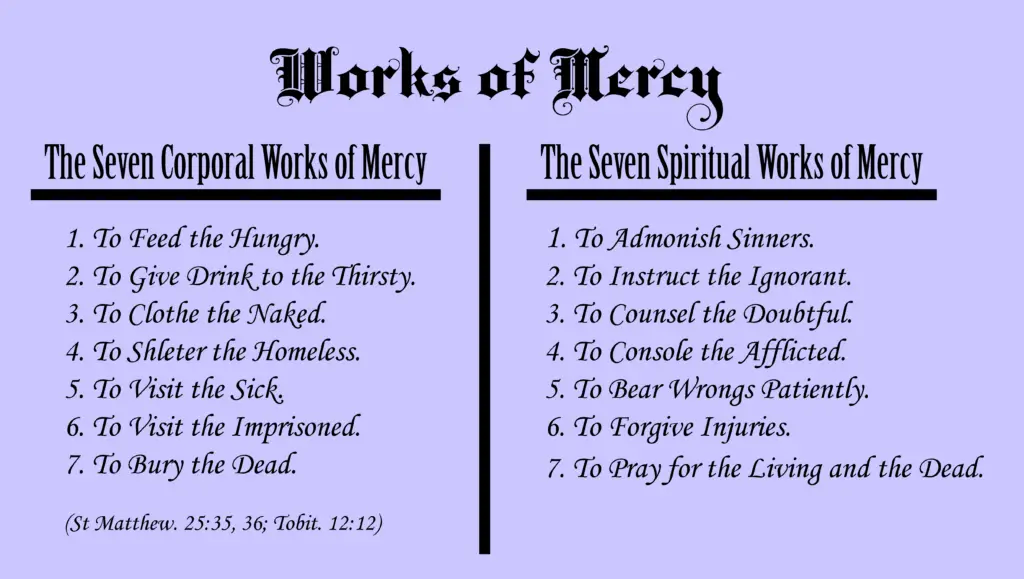
St Matthew’s gospel 25: 34- 36
“Come, Blessed adopt my father, possess you the Kingdom prepared for you from the foundation of the world. For I was hungry and you gave me to eat; I was thirsty, and you gave me to drink; I was a stranger and you took me in, cold naked and you covered me, sick and you visited me; I was in prison and you came to me”
Have you lived up to the Lord’s Law of Love?
“Jesus said to him: Thou shalt love the Lord thy God with thy whole heart and with thy whole soul and with thy whole mind. This is the greatest and the first commandment. And the second is like to this: Thou shalt love thy neighbour as thyself. On these two commandments dependeth the whole law and the prophets.” (St Matthew 22:37-40)
In general
- You lived your life faithful to God until your life’s end.
- You lived the example of loving God and neighbour.
- You despised the world and all the things of the world.
- You suffered much whilst upon earth.
- You performed hard works of penance.
Jesus Christ will command all his Angels to bring all the Saints before Him each will be dressed in a garment of glory, brilliant and beautiful so that they will shine like stars and they will enter into His glory and enter into heaven.
Just as God’s justice will reward those who were faithful to Him and served Him in this life, His justice will equally be delivered to those reprobates, those who chose this world and the love of themselves over serving God.
The words no one wants to hear on the General Judgment or our Particular judgment is :
“Depart from me, accursed into everlasting fire which has been prepared for the Devil and his Angels” (St Matthew 25:41).
As can be deduced, the Particular Judgement, our individual meeting with the Judge will be one of fear and trembling and will be based entirely on our choices in this life, our love of God and neighbor. The General Judgment is not a new judgement but a judgement for all to see.
This life will determine our eternal destiny –
Will it be Heaven with the Angels and the Saints; or will it be Hell?
The choice is ours.
God is a just and merciful. For those following their Particular judgment and are deemed worthy through how they lived their life in agreement to God’s Will, will enter into Heaven.
Whilst those unrepentant poor sinners who chose to love themselves above God and neighbor will enter into eternal damnation called Hell.
A merciful God has given the imperfect, since nothing defiled can enter into Heaven, a temporary place where they are purified and made ready for Heaven, Catholics call this place Purgatory.
Heaven is the place to be. Whilst Hell is the place to avoid at all costs. Aim for Heaven. Thank God for Purgatory.
